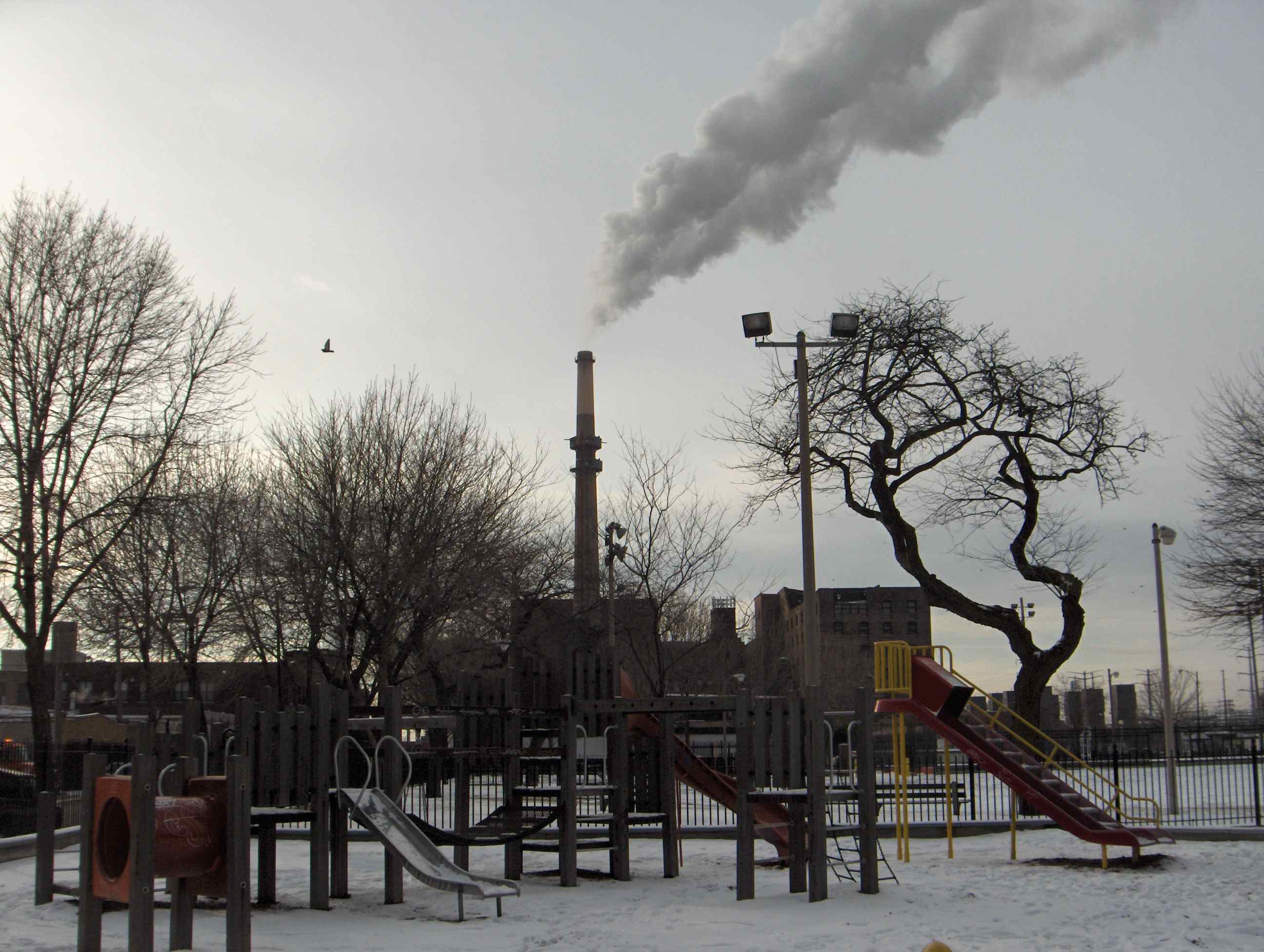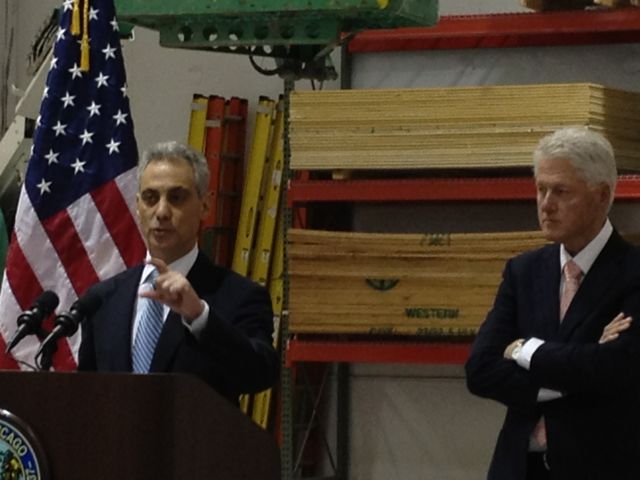Chicago Mayor Rahm Emanuel has taken two more big steps toward a clean energy future for Chicago. While many leaders talk about the urgency of transitioning to clean energy, Emanuel is acting, and making major changes that will deliver cleaner air and new jobs for Chicago in the near future.
First, Emanuel made a major break with the dirty energy of the past when he announced the closure of Chicago's two coal-fired power plants, which operate without scrubbers in the Pilsen and Little Village neighborhoods. Residents in neighborhoods at the base of the smokestacks have for years sought to have the plants cleaned up or shut down, but made no progress under Mayor Richard Daley. Despite support from across the city for action against these health threats, Daley never showed interest in solving the problem, and an ordinance that would have required cleanup languished in the City Council he controlled. Daley did a great deal to make Chicago cleaner and greener, but this is one problem he never took on in his quest to become the greenest city in America.

That all changed with the arrival of Emanuel. Emanuel talked during his campaign about the need to clean or close the coal plants, and upon taking office, set about to do just that. While support grew in the council for a proposal by Ald. Joe Moore and Ald. Danny Solis to force pollution controls, Emanuel called in the owners of the plants and made it clear that the days of dirty coal in Chicago were numbered. He worked with the community, health, environmental, and labor organizations in the Chicago Clean Power Coalition to set a timetable and conditions for closing the plants, and on Feb. 29, sealed the deal. Midwest Generation's Fisk plant, located across from Dvorak Park in Pilsen, will close by the end of this year, and their Crawford plant, in Little Village, will close no later than the end of 2014.
Moving beyond coal is a giant step for public health, but the transition to clean energy must be a two-step. Emanuel knows that clean energy solutions bring not only cleaner air, but also cost savings and the potential for thousands of new jobs. Most would agree with those goals, but current market barriers and economic problems have slowed the development of these technologies of the future. But how can we invest in the future when private capital is restricted by tight credit markets, and public dollars are scarce?

Emanuel seems to have devised a brilliant solution with the Chicago Infrastructure Trust. The Trust, which he launched with former President Clinton in Chicago on March 1, would leverage investment from participating lenders and investors in energy efficiency projects in Chicago. The investors would be paid a return based on the energy savings the public buildings will realize when retrofits are made. Emanuel plans to raise $200 million this way to retrofit public buildings in Chicago. Saving energy will create at least 2,000 jobs doing the retrofits, and save an estimated $20 million on government energy bills per year.
The transition from coal to clean energy can be slow when powerful interests fight to protect the status quo. Unfortunately, that's the role being played currently by the leadership of the U.S. House of Representatives. However, this week in Chicago two great leaps forward by Mayor Emanuel expedited the day when residents will be free of dirty coal power, and benefiting from the smart choices that will take its place.
In helping to announce the new energy efficiency spending, Clinton talked about Emanuel's penchant for action over words:
He was always concerned about how you can take an idea that was new and actually make it work. Talk is cheap in politics and business and life. Anybody can say anything. It's quite another thing to turn your good intentions into real changes.
These are real changes indeed, and they are real good for Chicago.